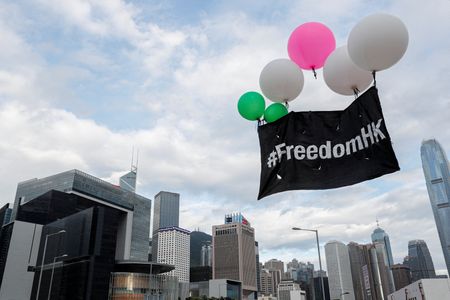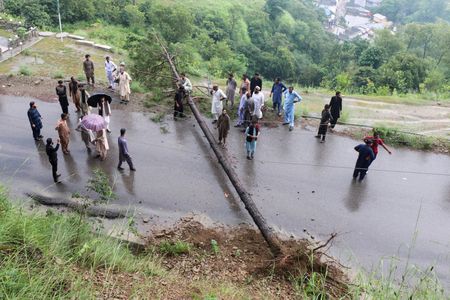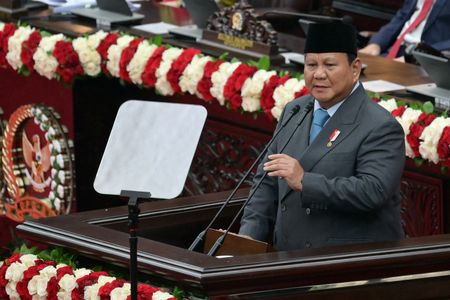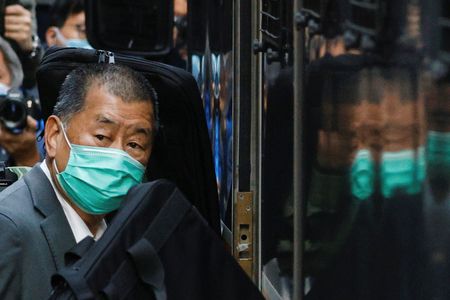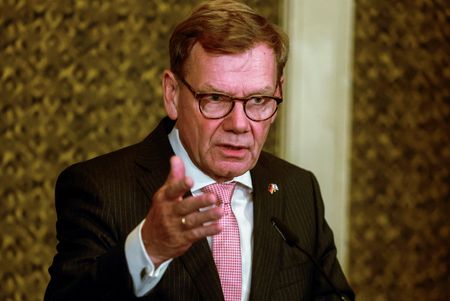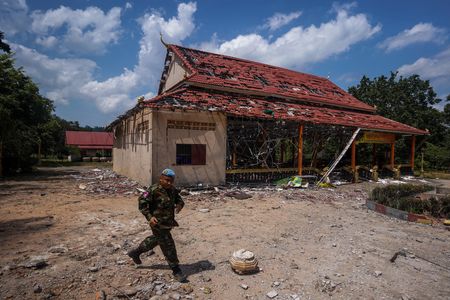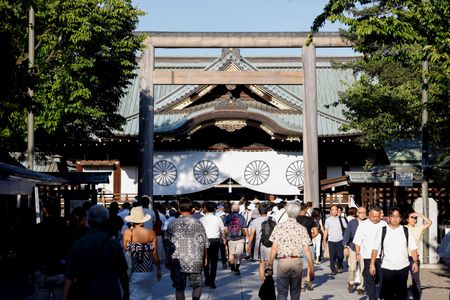By Michael Martina and Jessie Pang
WASHINGTON/HONG KONG (Reuters) -The U.S. sanctioned six senior Chinese and Hong Kong officials on Monday, citing “transnational repression” and further erosion of Hong Kong’s autonomy in the Trump administration’s first major move to punish China for a crackdown on the financial hub.
Western countries have criticised Beijing for using the national security law it imposed on Hong Kong to jail pro-democracy activists, as well as shut liberal media outlets and civil society groups.
Beijing says the law, which punishes acts like subversion and foreign collusion with up to life in prison, has brought stability after mass pro-democracy protests there in 2019.
“Beijing and Hong Kong officials have used Hong Kong national security laws extraterritorially to intimidate, silence, and harass 19 pro-democracy activists who were forced to flee overseas, including a U.S. citizen and four other U.S. residents,” the State Department said in a statement.
In response, it added, the United States was sanctioning six individuals who “engaged in actions or policies that threaten to further erode the autonomy of Hong Kong in contravention of China’s commitments, and in connection with acts of transnational repression.”
Monday’s sanctions block any transactions on property, funds or deals within the United States by these individuals, including Dong Jingwei, a former senior official at China’s main civilian intelligence agency.
Dong, now the director of China’s Office for Safeguarding National Security in Hong Kong, was previously China’s top spy catcher, who had oversight of counter-intelligence.
He was also vice minister of state security, a high-profile role that included hunting down foreign spies in China and nationals who colluded with foreign countries.
Also sanctioned was justice secretary Paul Lam, Hong Kong’s top legal official, who has driven prosecutions against scores of democratic activists.
Security and police officials Sonny Au, Dick Wong, Margaret Chiu, Raymond Siu were also sanctioned for their role in “coercing, arresting, detaining, or imprisoning of individuals” under the security laws.
“Such despicable actions constitute serious interference in Hong Kong affairs and China’s internal affairs,” Guo Jiakun, a spokesperson of China’s foreign ministry, told reporters, noting China would take firm countermeasures against Washington.
They “grossly trampled” on international law and international relations, exposing Washington’s intent to undermine Hong Kong’s prosperity and stability and suppress China’s development, Guo added.
U.S. lawmakers, both Democratic and Republican, had pushed the Biden administration to sanction all six officials, as well as 43 more, such as senior judges Esther Toh, Susana D’Almada Remedios, and Alex Lee, and senior prosecutors Maggie Yang and Anthony Chau who have been involved in national security cases.
China’s record on human rights, a contentious issue between the nations, has been a focus for Secretary of State Marco Rubio since he was a U.S. senator, and Hong Kong democracy activists have long seen him as a champion of their cause.
The sanctions “demonstrate the Trump Administration’s commitment to hold to account those responsible for depriving people in Hong Kong of protected rights and freedoms,” the State Department said.
Frances Hui with the Committee for Freedom in Hong Kong Foundation in Washington who was granted U.S. political asylum, called the sanctions a “critical step in addressing the worsening crackdown in Hong Kong.”
“We hope it marks the beginning of a sustained and broader effort to hold perpetrators accountable, including not only top officials, but also the judges and prosecutors at all levels who have played key roles in silencing dissent,” Hui said.
Separately, Rubio said the U.S. would impose additional visa curbs on Chinese officials involved in policies on access for foreigners to Tibetan areas.
Foreign tourists are allowed to visit Tibet but must travel in groups and obtain a permit in advance. Diplomats and foreign journalists require the approval of Tibet’s local authorities.
(Additional reporting by Ryan Woo and Ethan Wang; Editing by James Pomfret, Kim Coghill and Clarence Fernandez)

